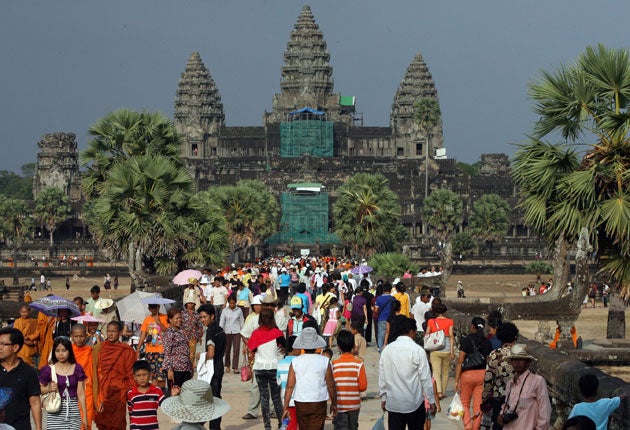Sarah Barrell: Ah yes, I remember it well – or do I?
Travel View

Your support helps us to tell the story
From reproductive rights to climate change to Big Tech, The Independent is on the ground when the story is developing. Whether it's investigating the financials of Elon Musk's pro-Trump PAC or producing our latest documentary, 'The A Word', which shines a light on the American women fighting for reproductive rights, we know how important it is to parse out the facts from the messaging.
At such a critical moment in US history, we need reporters on the ground. Your donation allows us to keep sending journalists to speak to both sides of the story.
The Independent is trusted by Americans across the entire political spectrum. And unlike many other quality news outlets, we choose not to lock Americans out of our reporting and analysis with paywalls. We believe quality journalism should be available to everyone, paid for by those who can afford it.
Your support makes all the difference.A couple of weeks ago, I met Ellen Davignon, a Canadian frontierswoman who had penned a book about her childhood on the Alaska Highway. Her family opened one of the first tourist lodges in this sub-Arctic region, and although that might date her, Ellen's memory was as sharp as a midwinter icicle.
Her book, The Cinnamon Mine, although cosily titled and fondly hewn, is a pretty intimate dissection of domestic life, carved out on the banks of the remote Teslin River: Little House on the Prairie but naughtier. Ellen was also a longtime writer of a column in the local paper, entitled "Lives of Quiet Desperation", which delved frankly and often hilariously into life with her alcoholic husband.
I asked her how she'd got away with it, living in a hamlet of barely 10 people. She said it was the style in which her stories were delivered, with love and humour, but nonetheless, there had been some terse discussions among her siblings about shared memories. The key point being that in some cases they weren't shared at all. What one child recalled, another didn't have any memory of. It was as if an event never happened.
It got me to thinking about holidays. Particularly family holidays – ones carefully arranged by parents to create lasting memories or stamp cultural blueprints into their progeny. But what will most children remember about a trip to the pyramids, for example? Probably the ice cream they ate queuing for King Tut's tomb.
My daughter's school had an art exhibition recently, entitled "My favourite holiday EVER". Each child drew a picture of their best break, centring around a holiday snap. The images were quite varied but I couldn't help but wonder if they said more about the parents than the children. The picture of a four-year-old asleep in a hammock, for example, was surely more the cherished memory of exhausted parents rather than the child. Mum or Dad, after all, was probably in charge of the camera.
It's often early travel experiences – "foreign", strange-smelling, and exotically flavoured – that shape our most powerful memories. And yet sometimes we aren't entirely sure if they are ours at all. I, for one, am now not sure if it's certain classic family photos I remember, rather than the actual place or event.
But how about really leaving travel memories to chance and getting local wildlife to take your snaps for you? British photographer David Slater had the camera turned on him ... by a troop of crested black macaques in Indonesia. Slater had left his equipment on the ground and his camera was snatched by a monkey who then went snap happy. Most of the photos are out of focus but there are several rather incredible smiling self-portraits of the primate that will surely spawn an exhibition – Slater sharing the billing with the macaque, of course.
***
The 11th-century Baphuon temple at Angkor Wat, Cambodia, reopens this week after 50 years of renovation. It was dismantled decades ago, and has been slowly pieced back together, wars and freak weather allowing, in what archaeologists call the world's largest 3D jigsaw puzzle.
Do you have a travel issue? Email sundaytravel@independent.co.uk
Join our commenting forum
Join thought-provoking conversations, follow other Independent readers and see their replies
Comments